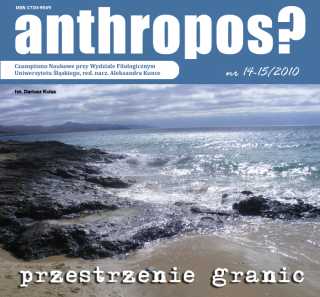Granice w Cascais
The limit in Cascais
Author(s): Zbigniew KadłubekSubject(s): Cultural Essay, Political Essay, Societal Essay
Published by: Instytut Nauk o Kulturze i Studiów Interdyscyplinarnych - Wydział Filologiczny - Uniwersytet Śląski
Keywords: city experience; limits; borders; cultural spaces; cultural travel
Summary/Abstract: Surely this short essay is a consisting of one sketch, which is a reviews of cultural study about the most famous Portugal city - Lisboa. As the author has assured, Lisboa today is already city, which is not smell excessively substances such as vanilla or oriental - that was burdensome, because complained about that Sá de Miranda near five hundred years ago. In fact, Lisboa is certainly not the saddest city in the world; rather it is a city of gravest and full of nostalgia, as well as formerly fragrances spices. This empirical city experience makes a question - May not even would have to be the nitrous in the air dense feelings called nostalgias, but expectation ? The Author has affirmed, this is other expectation; it is a strong nautical hope, which means that more than any possible limit of ideas exist a limitless horizon of an open and spacious living; where the house is a horizon and not what is easy reach within. Kadłubek reminds the first newcomer of Lisboa - that was Ulisses. He was the first, who he settled here and sailed - here, which means to these limits around the world. In such a beautiful rhetorical way, author has described yourself Lisboa experience, as the arrived of Ulisses. So far, he writes - In Lisboa, Ulisses is happy now ! The Happiness of Ulisses will be mine too! As he: I would like to get to Europe's borders, to the limits of everything, to reach the house. I would like to see, whither the existence going is? Is it possible, that as Tejo - falls to the Atlantic, where all mixed together? Where the one life has spilled down by bringing together with the other life, where everything is mixed, but nothings has not lost at the border life. So far, this piece opens a meditation about an appropriation the limits and paradoxically a freedom. When author writes - to appropriate - he thinks about freedom, which smells as geological roots on the far side of the world; that is why I need water and salt, because I crave extremely immeasurable oceanic expanse; I crave limitless, because I relies, that the limit, which is the most limitless - it means - separates all from everything in final and definitive way is a sea, an ocean; then I thought so 'I'm going to Cascais', twenty-five km west of Lisboa. At the end, author calls - looking for limits, we crave the ocean view, we are going to Cascais; towards to depths such as distant and great. We never care about the conclusion; we never going to close something, we always open and unlock something.
Journal: Anthropos?
- Issue Year: 2010
- Issue No: 14-15
- Page Range: 52-55
- Page Count: 4
- Language: Polish

